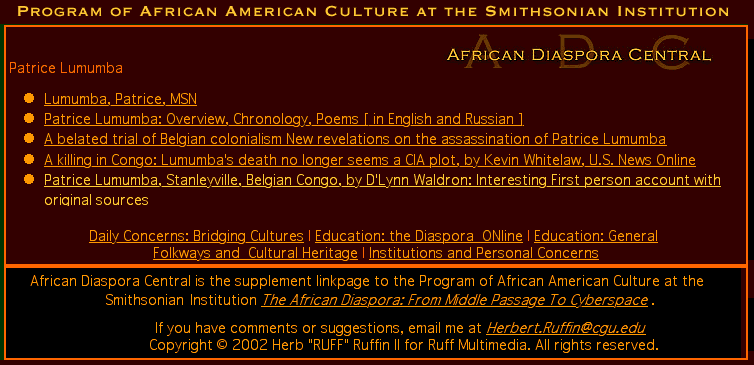

Union of South Africa, Apartheid, Escape from the Secret Police
by D'LynnWaldron, PhD, FRGS ©1960-2011
I was in the Union of South Africa in 1960 as a roving correspondent for Scripps-Howard newspapers when I came to be a fugitive from the Boer Afrikaner police at the time of the Sharpsville massacre, and following the Coalbrook coal mining disaster on January 1, 1960 in which there were 437 casulaties.
HISTORICAL BACKGROUND TO THIS NARRATIVE
When the Dutch first settled around the Cape of Good Hope in 1652, the San (Bushmen) and the Khoikhoi (Hottentots) were living in the southern coastal region, and there was a large Bantu-speaking population in present-day KwaZulu-Natal.
By the early 18th century, most Bushman had moved to inaccessible parts of the country such as the Kalahari Desert to escape the Europeans, while many of the Hottentots remained near the Cape, where they became virtual slaves.
White farmers of Dutch descent (known as Boers or Afrikaners) began to trek increasingly farther north from the Cape in search land for their cattle and crops. By 1750 some farmers encountered the Xhosa and in 1779 and a long series of wars between the White settlers moving north and the Africans already living there began.
During the Napoleonic wars the British replaced the Dutch at the Cape and in 1814 the territory was assigned to Great Britain by the Congress of Vienna. Great Britain alienated the Boers by imposing it’s form of administration, by calling for better treatment of non-Whites by the Boers, and by restricting the acquisition of new land by the Boers.
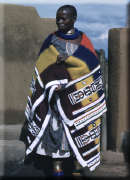
In 1899 the Boer Transvaal and the Orange Free State declared war on Great Britain. This ‘Boer War’ was won by the British in 1902.
In 1910 Britain established the Union of South Africa, with dominion status.
The Boers’ National party won the 1948 elections and instituted apartheid laws to enforce segregation and insure the social and economic domination of the country by Whites.
In the 1950s and early 60s there was passive resistance against the National party’s policies. In 1960 a peaceful protest against the pass laws at Sharpeville, near Johannesburg, ended in the police massacring 70 protesters and wounding almost 200 others.
In the 1960s most opposition Black leaders, including the ANC’s Nelson Mandela, were in jail or living in exile, and the government proceeded with its plans to permanently segregate Blacks in ‘homelands’.
In 1961, the Boer run Afrikaner Nationalist government took South Africa out of the Commonwealth of Nations and made a republic. The decades that followed saw the brutal, often maniacally savage oppression of the Blacks by the Boer Afrikaner government’s police.
NARRATIVE-
When I arrived in South Africa in 1960, Macmillan’s ‘Winds of Change’ were sweeping the whole continent. But in South Africa, the change was not to an African run government, but to a repressive Boer Afrikaner government that wanted complete independence from Britain, and inflicted repressive apartheid segregation on non-Whites.
The long standing animosity between the English descent South Africans and the Dutch descent Afrikaner Boers took the form of English resistance to Afrikaner rule, and as part of this, the English sided with the non-White South Africans in their struggle against apartheid. A manifestation of this resulted in my being hunted by the Afrikaner police and hidden by the English descent South Africans, which I relate below.
---------------
I arrived in Cape Town South Africa in February 1960, after coming down the East Coast of Africa on the old Warwick Castle, which stopped at every port along the way.
After spending some time in Cape Town, which included visits with leaders District 6 and the African Townships, I set out on a hitch-hiking journey that would eventually take me through much of Black Africa.
This was the time of the Coalbrook disaster in which 480 miners were killed, and in Johannesberg, I requested to go on one of the tours to a gold mine on the Rand that the government arranged periodically .
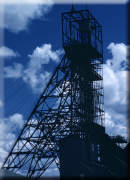
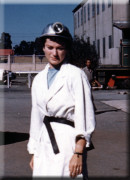
At the mine, after being kitted out in a miner’s outfit, I slipped away from the tour group to see if I could find out something I was not supposed to.
This was not a large gold mine and employed only 2500 Blacks and Whites combined. The African workers, some of whom were there on contract from Mozambique, lived in a campus-like compound with pleasant dormitories, a nice cafeteria with a variety of good quality food, a cinema and other recreational facilities and a modern hospital. What they didn’t have was the freedom to visit their families during their term of contract which was for years.
The African workers earned between 75¢ and $1.75 for an eight hour day, which was above what an African could earn at any other work, plus all the other benefits the miners got.
Unions were outlawed because the government said that if the African miners earned even half of what American miners did, the gold mines would have to shut down. Since South Africa produced half the world’s gold, and Russia most of the rest, a shut down of the South African mines would greatly increase the price of gold and Russia would benefit from that, which was something the West did not want.
I slipped into the small one-story administration building and went down the hall. I saw a man in a little office writing in two sets of ledgers. He motioned me to come in.
When he spoke it was with an English South African accent.
“I was disabled in a mine accident, so they have me doing this.”
He motioned me to come and stand behind him.
“These are two sets of ledgers into which I put the expenses, income, and profits from the mine. This set of books is the one they show people to justify how little they pay the African miners, and this is the genuine set of books showing their profits are far higher than they say.”
I took out my pad and scribbled down some of the figures and the man even turned the books as far as he could to the light so I could photograph them.
I had been continually encountering English South Africans who were vehemently opposed to the policies of the Dutch Afrikaner run government with its apartheid policies and exploitation of African labor.
I later realized that these English South Africans had no idea that in opposing the diamond and gold mining policies of the Afrikaner government, they were also opposing the economic interests of Western industry and banking to whom most of the profits went, which put them in conflict with Western governments like the United States.
I left the office building with my information and the man returned to his cooked account books.
That night after supper I found a young English South African man waiting for me outside my hotel room door in Johannesberg.
“Please, can we talk down the end of the hall, or some place like that?”
I followed him to the end of the hall where he continued,
“Have you thought of going to Kruger Park?”
“Of course.”
“I suggest you leave for Kruger Park tonight.”
“Why?”
“Because they know you slipped away from the tour and went into the administration building and stayed for a long time talking to the Englishman who makes the copies of their books. They think he may even have let you take photographs of the ledgers. There was a meeting about you this evening in the office of Mr. Loew, the Dutch South African head of Foreign Relations- he was very pro-Nazi during the War. They want to get all your film and notes away from you, so we have to get your across the border into British Rhodesia.”
“How does this concern you?”
“My family came from England to South Africa in 1810. I love this, my country. The apartheid policy of the present Dutch government is morally wrong and it will lead to the destruction of my country. I want you to tell the world what you have learned today. We have made a reservation for you on the 8:30 train to Nelspruit tonight and tomorrow morning you will call Mr........... at Skukusa Camp. Skukusa Camp is closed this time of year and you can be safely hidden there until we can figure a way to get you through the British Protectorate of Bechuannaland to the Rhodesian border.”
The night train ride to Nelspruit turned out to be a riotous party because my fellow passengers were a rugby team.
At 2: am, I told the team I really had to go to my compartment and get some sleep, but no sooner had I tucked myself in for what was left of the night, when the rugby team burst into my compartment and began throwing out of the train window the cushions, blankets, ashtrays and everything else except myself, my cameras and my B4 bag, that they could fit through the window.
Their trainer came running in and apologized profusely then made the team members scrounge replacements from empty compartments for everything they had thrown out my window.
I was hardly ready for the new day when we arrived at Nelspruit at 7:30 a.m., so I just stayed in my compartment and continued to sleep when it was shunted off into the yards. I got up an hour later and carried my things through the yard to the town. There I learned that the South African police had been waiting at the platform for me, then assumed I had gotten off at an earlier stop.
I went to the Fig Tree Hotel where I called Skukusa Camp. The man I was to speak to was off in the hinterlands and would not be back in the camp for several days, so I took a room in the hotel to wait for him to call on his return.
Three days went by while I took pictures around Nelspruit, but no call came.
The third afternoon, the English South African mayor of Nelspruit came and said he would have no choice but to report my whereabouts to the security police if I was not gone before evening.
A couple stopping at the Fig Tree Hotel gave me a lift to White River, but there too I was asked to move on the next day.
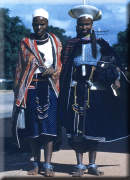
I called Skukusa Camp and asked if anyone there knew about me.
One of the directors of the Camp said he did, but he was afraid to get involved. Finally he said if I could make my own way to the Camp, they would let me stay there in the Camp which was closed to tourists in that season.
I took my cameras and B4 bag to the side of the road and sat down on the curb. Very shortly a car stopped and the driver asked where I was headed. I told him Kruger Park and he told me he could take me to the entrance of the Park, and from there I would have to find another ride to take me the many miles to Pretorius Kop, the nearest Rest Camp, because no one was allowed in the Park on foot.
At the entrance to Kruger Park I sat myself by the side of the road with a sheet of paper on which I had printed in big letters ‘Kruger Park Rest Camp’.
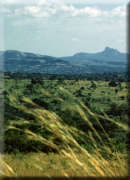
After half an hour a family stopped their car and said they would be going into the Park in the morning after spending the night in a nearby hotel, and if that suited me I was welcome to come with them.
I thanked them profusely, heaved by B4 bag on the roof luggage rack and got in the back seat with the children.
We drove at a frightening clip on the winding road as the lengthening shadows stretched out from the sharp hills.
The hotel where we spent the night was a beautiful new rambling building, set high on a hilltop overlooking a magnificent panorama of African scenery.
The English South African owners had for several generations been farmers on several hundred thousand of their own acres near the Rhodesian border, where they could do big game hunting on their own land. Now they had decided to stop putting money back into their land because the day of the gentleman farmer was about to end, and instead they had invested in a hotel.
The family and I set off the next morning at 5:30 and entered the Park at 7:30.
The family very kindly let me have a window seat so I could hang out of the car window with my cameras.
We drove over dirt road looking for big game, but all we saw were innumerable wildebeests, many zebra, small antelope, and the occasional large buck.
I suggested we drive in the direction of Skukusa Camp and to my surprise found that it was open to serve lunch to tourist during the day, and only closed up at night.
I took down my B4 bag, thanked the family, and headed for the Camp Office.
When I found that the Chief of Police at Skukusa was a Dutch Afrikaner, I decided that was why I had never gotten that call from the English director. Then to my utter surprise the Afrikaner greeted me and said he would have a rondoval prepared for me so I could stay during the night.
Suddenly the African radio man came running in and said the Chief of Police had to come to the radio room.
There we heard the short-wave radio broadcasting my description to all police stations on the high veldt and the border posts.
“That’s Mr. Loew himself, speaking,” the Chief of Police told me.
I couldn’t understand Afrikaans, but the gist was clear. Every effort was to be made to apprehend me and send me back under guard, with everything I had with me.
The man who let me see the ledgers at the gold mine, and everyone who helped me along the way, would be in great trouble if I was caught and elected to name them to get an exit visa out of South Africa. But of course I would never do anything like that, as I was to prove in another time and place.
When the broadcast was finished, the Afrikaner Chief of Police turned to one of his African policeman and said, “Bring us two beers, please.”
I spent three nights alone in Skukusa Camp, where I could walk to the river and see the crocodiles on the bank, and at sunset watch nearly a hundred impala graze their way through the camp for an hour, paying no attention to me.
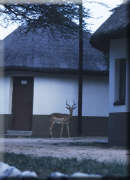
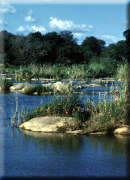
I had been three days in Skukusa camp when word came back that an Afrikaner tourist had reported a young woman who appeared to be staying in the camp and so I had to leave immediately.
The Chief of Police gave me two options. I could take the park supply train 36 hours through the closed section of Kruger Park the northern boundary and hope from there I could find a way to the main line and get over the border, or I could take that same train south back to Nelspruit, and work my way by road to the border.
I took one look at the box cars and decided anything was better than being in one of those closed box cars in the African heat.
I went back to the Chief of Police and asked if there weren’t another option.
He said I could find a tourist that afternoon to take me back to Pretorius Kop then go in a supply truck that would be arranged, through the wild hinterland of British Protectorate of Bechuanaland to cross the Rhodesian border at Plum Tree.
But once I got to Pretorius Kop, there was no word of the supply truck.
A Belgian family down on holiday from the Congo where the husband worked, said they could give me a ride with them in their air conditioned Mercedes sedan to Salisbury, Southern Rhodesia.
The Belgian family wasn’t leaving for two days and they took me around the park with them.
The first morning, we were warned at the gate out of Pretorius Camp that the elephants were drunk again.
Who was plying the pachyderms with booze?
No one. The fruit of a certain tree was fermenting and when it did all the animals in the park went on a bender.
We were shown a picture of a 2CV car (one of those French cars that looks like a VW made out of corrugated iron) which had come between an inebriate mother elephant and her calf.
The elephant had put her tusks through the front luggage compartment and up through the roof and slammed the 2CV up and down until the wheels splatted out sideways.
We weren’t two miles into the park when we saw a huge bull elephant standing in the middle of the road in front of us, his ears out, his trunk up, and bellowing. Suddenly he charged us, and the terrified Belgian tried to get the car in reverse but couldn’t as the elephant came at us like a locomotive. Then, no more than fifty feet away, the elephant stopped, regarded us for a moment, and walked off into the bush.
Back in camp we found ourselves quite the celebrities because the story of our encounter had already been spread by the people who were in the two cars behind us. Everyone wanted to know if I thought the cine film I took of the charge would come out and I had to tell them I took the whole thing with the lens cap on.
We left the park two days later and spent the night in the quiet little town of Louis Trichart. I thought the scenery from Zululand north through Louis Trichart was much more beautiful than the famed scenery of Cape Province, or the Garden Route drive down the East coast from Durban to Cape Town.
The Belgian family had one teenage daughter with them, and another daughter of 17 who was on their documents, but not with them.
The next morning we arrived at the border post at 7:30.
I stood quietly with the Belgian family as the border guards checked their documents in the little guard building, hoping they would think I was the second daughter, which they did.
When the two guards went out to check the car, I stamped my South African travel document with their exit stamp and slipped it into the tray with the others waiting to be processed. I then stamped my passport, so there would be no problem on the Rhodesian side of the border, which I did not wish to cross pretending to be the Belgian’s daughter.
When I got to Salisbury, Southern Rhodesia, I was told that the South African police had waited for two weeks in a sweltering dry wash outside Plum Tree, waiting to catch me crossing the border there, and only learned I was gone when my self-stamped exit papers were processed in Johannesberg.
These headlines error in saying that D'Lynn Waldron was deported, when in fact she escaped the country when the police were looking for her. Also note that the newspaper chose not to include anything about the true price of mining gold being much less than the set of books that me mine company made public claimed.
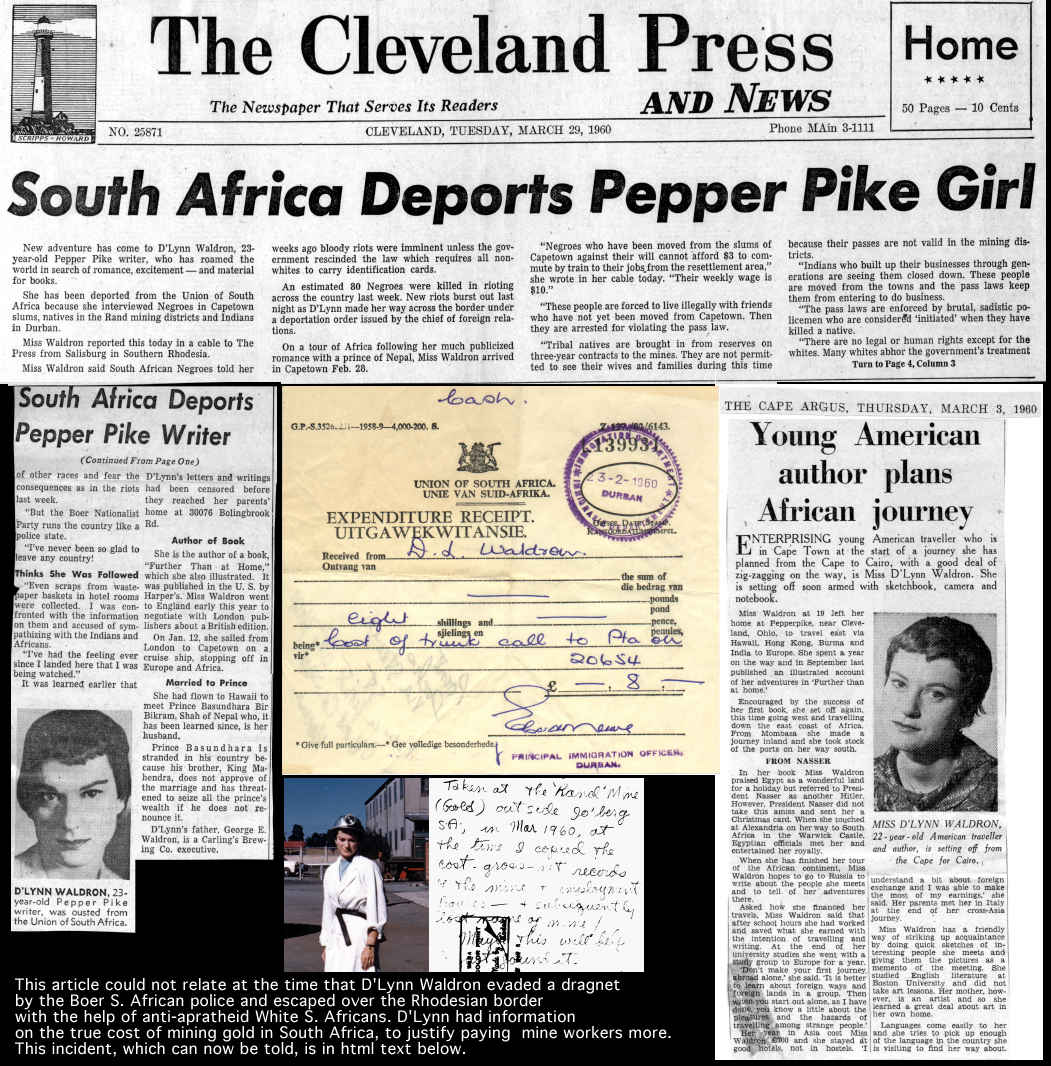
An incident taken from newspaper articles and a journal written in Africa in 1960, by D’Lynn Waldron, PhD, FRGS ©
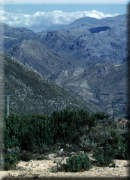


PATRICE LUMUMBA, THE CONGO, AND ALL OF AFRICA: CONTENTS
articles and commentaries by D'Lynn Waldron
Lumumba, the assassinated first Prime Minister of the Congo.
D'Lynn Waldron's newspaper headline stories and photographs, plus related documents from 1960, with a commentary by D'Lynn Waldron written in 2001. The subjects covered on this web site include Lumumba in Stanleyville and his real attitude towards America and Russia, and the secret cannibal war in the Kasai fostered by the Belgian government to sabotage the upcoming independence, which D'Lynn Waldron exposed.
PART 1- LUMUMBA IN STANLEYVILLE AT THE TIME OF THE ELECTIONS
D'Lynn Waldron was the only correspondent in Stanleyville and her newspaper stories contain both historically accurate information as written by D'Lynn Waldron, and also the disinformation put in by the newspaper publisher back in America. Her 2001 commentary points out the disinformation.
THE CONGO & AFRICA
articles and commentaries by D'Lynn Waldron ©2006
NOTE: MANY OF THESE PAGES CONTAIN FULL SIZE DOCUMENTS AND ARE VERY LARGE. IF YOU ARE ON BROADBAND THIS WILL NOT BE A PROBLEM, BUT IF YOU ARE ON A DIAL-UP MODEM, SOME PAGES WILL TAKE A MINUTE OR MORE TO LOAD.
Lumumba, the assassinated first Prime Minister of the Congo.
........Lumumba in Stanleyville- D 'Lynn Waldron's 1960 headline story
........D'Lynn Waldron's commentary on this written in 2001
........Lumumba's telegram regarding troops being brought in, etc.
........D'Lynn Waldron's commentary on her time in the Congo written in 2001
........Lumumba's typed statements on his policies for the Congo with D'Lynn Waldron's handwritten questions
........Patrice Lumumba's statements on his policies for the Congo in D'Lynn Waldron's handwritten interview notes
........Lumumba's statements about the Belgian Admin and General Janssens in Stanleyville (document is a VERY large file!)
........Cable with Lumumba's statements sent by D'Lynn Waldron and not published by Scripps-Howard Newspapers
........Messages carried between Lumumba and General Janssens by D'Lynn Waldron with Lumumba's handwritten comments
.......D'Lynn Waldron's report on conflict between General Jannsens and Patrice Lumumba
.......Refusals of Belgian Administration to transmit D'Lynn Waldron's press cables about Lumumba
.......TIME Magazine's slanders of Patrice Lumumba May 1960
......D'Lynn Waldron's cable to American Consulate in Uganda about hitch hiking out of Congo through Ruanda Urundi
........A GALLERY OF PICTURES OF PATRICE LUMUMBA
........Response to a reader asking why Lumumba was assassinated
.......Raoul Peck's movie "Lumumba" a discussion by D'Lynn Waldron
.......Ludo De Witt's book "The Assassination of Lumumba" a brief review by D'Lynn Waldron
.......E-Mail with historical data concerning her father and family from Dorothee Gizenga
THE TRIBAL WAR IN THE KASAI.
.........The Tribal War In Luluabourg- D'Lynn Waldron's 1960 headline story
.........Kasai section of D'Lynn Waldron's book "Secret in the Heart of Darkness"
........Henry N. Taylor killed filling in for D'Lynn Waldron in Luluabourg the Congo
........Journeys on the Congo and Kasa i Rivers
D'LYNN WALDRON'S ESCAPE FROM SOUTH AFRICA










